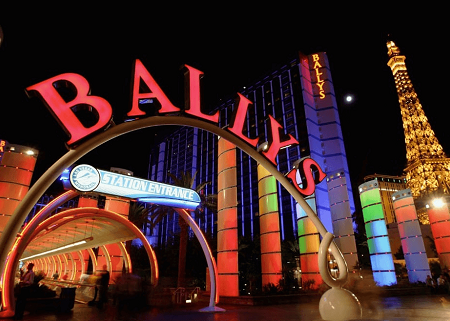 The US casino industry has experienced a significant shift in recent years due to regulatory changes to enhance player protection, responsible gambling initiatives, and technological advancements. These changes have impacted casino operators, players, and the overall landscape of the industry. This blog post will explore the latest regulatory updates in the US casino industry, focusing on new gambling laws, licensing requirements, and jurisdictional regulations. We’ll analyze implications for casinos, operators, and players, exploring industry shifts and how these changes impact player protection, responsible gambling, and technological advancements.
The US casino industry has experienced a significant shift in recent years due to regulatory changes to enhance player protection, responsible gambling initiatives, and technological advancements. These changes have impacted casino operators, players, and the overall landscape of the industry. This blog post will explore the latest regulatory updates in the US casino industry, focusing on new gambling laws, licensing requirements, and jurisdictional regulations. We’ll analyze implications for casinos, operators, and players, exploring industry shifts and how these changes impact player protection, responsible gambling, and technological advancements.
Exploring the Impact of Regulatory Changes on the US Casino Industry
In response to the evolving nature of the gambling industry, several states in the US have implemented regulatory changes to ensure a safer and more responsible gambling environment. These changes include new gambling laws, licensing requirements, and jurisdictional regulations. For example, the legalization of online gambling in certain states has opened up new opportunities for operators and players alike. In contrast, other states have taken measures to regulate online gambling more strictly.
Additionally, licensing requirements are now stricter, ensuring reputable operators obtain licenses. Jurisdictional regulations have updated, enabling interstate online gambling agreements for larger player pools and increased revenue potential for operators.
Navigating the Operational Adjustments and Financial Implications of Regulatory Changes
The recent regulatory changes have significantly impacted both online and land-based casino operators. Compliance procedures have become more complex, requiring operators to invest in robust systems and processes to ensure adherence to the new regulations. This includes implementing age verification measures, identity verification procedures, and powerful anti-money laundering frameworks.
Moreover, operational adjustments have been necessary for operators to align with the changing landscape. Online operators have had to invest in advanced technologies to offer seamless user experiences and ensure data security. Land-based casinos have faced challenges adapting to the changing market dynamics and have had to incorporate online components to stay competitive.
Financial implications have also been evident with higher licensing fees and taxes. While this has increased costs for operators, it has also led to more revenue for states and jurisdictions, which can be directed towards public services and initiatives.
Impacts on Players in the US Casino Industry
The regulatory changes in the US casino industry have positively and negatively affected players. Legalized online gambling broadens player options, offering convenient access to casino games from home. It also fosters responsible gambling through measures like self-exclusion and spending limits, prioritizing the protection of vulnerable players.
However, some players may face challenges as a result of these changes. Stricter regulations may lead to increased verification procedures, which could cause delays in account creation and withdrawals. Additionally, introducing higher taxes and fees on operators may indirectly impact players through reduced bonuses and promotions.
 Influence of Regulatory Changes on the US Casino Industry’s Landscape and Trends
Influence of Regulatory Changes on the US Casino Industry’s Landscape and Trends
The regulatory changes in the US casino industry have reshaped the entire landscape, sparking various industry trends and transformations. The market has become more competitive, with established operators and new entrants vying for a share of the growing industry.
Online gambling platforms drive game innovations and user experiences, as operators strive to attract and retain players. This includes embracing technologies like virtual reality (VR) and augmented reality (AR), enhancing the immersive and engaging nature of gambling.
Furthermore, the regulatory changes have encouraged partnerships and collaborations among industry stakeholders, such as casinos, sportsbooks, and technology providers. This has paved the way for integrated platforms that offer a seamless experience across various gambling verticals, providing players with a comprehensive gambling ecosystem.
Player Protection and Responsible Gambling through Regulatory Changes
One of the most significant outcomes of the regulatory changes in the US casino industry is the increased focus on player protection and responsible gambling. Operators are now required to implement stringent measures to ensure the well-being of their players. These measures include robust age and identity verification procedures and tools and resources for players to set limits on their gambling activities.
Technological advancements have played a vital role in enhancing player protection and responsible gambling initiatives. Artificial intelligence (AI) and machine learning (ML) algorithms are employed to identify and flag potential problem gambling behaviors, allowing operators to intervene and offer assistance when necessary. Furthermore, advanced data analytics help operators gain insights into player behavior, enabling them to personalize responsible gambling tools and interventions.
Conclusion
The recent regulatory changes in the US casino industry have had far-reaching implications for operators, players, and the industry. Stricter regulations, increased compliance procedures, and operational adjustments have challenged operators while fostering a safer and more responsible gambling environment. Players now have a more comprehensive range of options but also need help with verification and reduced promotional offerings.
As the industry evolves, all stakeholders must prioritize player protection and responsible gambling initiatives. Embracing innovative technologies and collaborations, the US casino industry aims to create a sustainable and enjoyable gambling experience. Further advancements and transformations hold great potential for a thriving industry that prioritizes player enjoyment and responsible practices.









